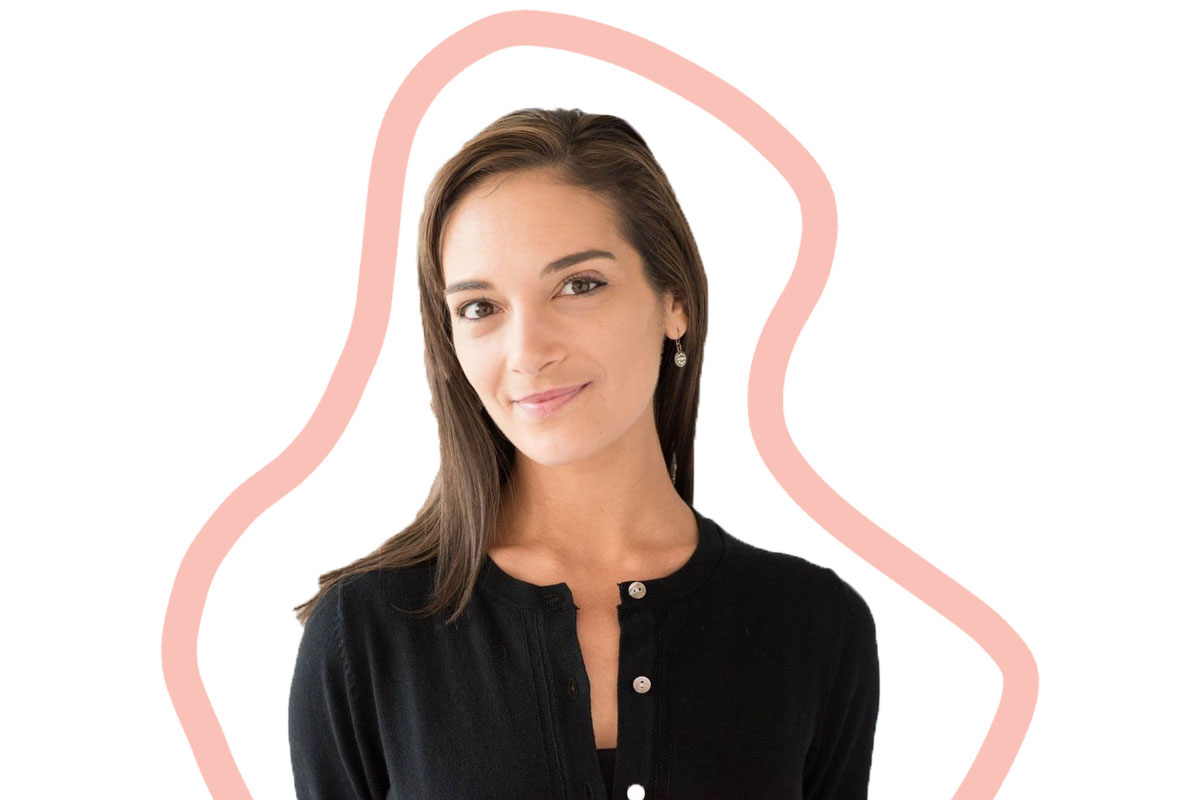Julia Salazar, the 29-year-old candidate for New York State Senate, can’t seem to stay out of the news.
Self-identified as a Latina Jewish millennial and democratic socialist, Salazar was poised to become “the next Alexandria Ocasio-Cortez.” As The New York Times reported, “Like Ms. Ocasio-Cortez, Ms. Salazar is young and Latina, poised and progressive, and a democratic socialist. Like Ms. Ocasio-Cortez, she boasted of blue-collar roots: she worked as a nanny, Ms. Ocasio-Cortez as a bartender. Neither had ever been elected to office.”
But ahead of the New York primary elections next week, there have been many unanswered questions about Salazar’s background.
Salazar told JTA that she comes from a “secular and mixed family, Catholic and Jewish,” and that she began exploring her Jewish identity at age 18 when her father died. She explained that she was aware of her “Sephardi surname,” and she draws inspiration from “a legacy of Jewish tradition” and “building solidarity with other marginalized communities.”
But an article published in Tablet Magazine shortly afterwards called into question her background — where they quote her brother, Alex, who says, “There was nobody in our immediate family who was Jewish … my father was not Jewish, we were not raised Jewish.” Yet in the New York Times article today, Salazar’s mom says her husband had a Sephardic background.
It’s sparked a debate over gatekeeping in the Jewish community, and over Salazar herself, and it keeps getting more and more confusing. We’re here to break it down for you.
Is she an immigrant?
Salazar has identified herself as an immigrant. She told Jacobin Magazine, “My family immigrated to the U.S. from Colombia when I was a baby,” and an introduction at a Jewish Vote fundraiser described her as “an immigrant, Jewish women [sic] of color, feminist, democratic socialist, and union member.”
Salazar clarified this to reporter Emma Whitford: “I was born in Miami but it’s kind of complicated. Basically, my parents were living in Colombia at the time but my mom was a flight attendant when my parents met so they were sort of transient when my brother and I were really young. So we lived in Colombia and then my mom raised my brother and I in South Florida.”
Family members question her claims about growing up in an “immigrant family.” According to City & State New York, “[her brother] Alex says, they were raised entirely in Florida. He remembers a handful of brief trips to Colombia to visit family. The exact number of their trips is unclear, but the ‘back and forth’ childhood between Colombia and South Florida that Julia Salazar describes is also rebutted by her mother, Christine Salazar. Alex and Christine Salazar also note, as Julia readily acknowledges, that their father first came to the country as a teenager.”
Does staying for a week or so at a time, over a half dozen or so trips, count as a "back and forth" childhood btw Florida and Colombia? bc that's what Julia Salazar's mom told me https://t.co/KFiIMT53Pv
— Zach Williams (@zachejwilliams) August 31, 2018
Alex refutes Salazar’s definition of their family as an “immigrant family.” (Salazar, for her part, disagrees with her brother’s memory.)
However, as some pointed out, how Julia Salazar understands her own family should be enough.
She clarified her “immigrant” self-definition, explaining, “I’m not an immigrant myself. Rather, I have always felt a deep connection to my father’s immigrant experience because of the time I spent with our family in Colombia at such a young age.”
late to the game here, but: the attacks on julia salazar have dredged up a lot of questions for me about families in transition and how our stories are scrutinized by people with multi-generation stability who just don't get it
— Megan Magray (@megkmag) September 2, 2018
Is she a Democrat?
There have also been recent claims that Salazar was an anti-abortion activist in her days at Columbia. She was reportedly fervently pro-life, and was president of Christians United for Israel, but her views have since evolved.
“My own experience of political evolution as a young adult has made me more empathetic to other people coming around,” Salazar said. “It’s important to be willing to engage with people who experience similar evolutions. That should be the goal of our political project.”
She told Jewish Currents about the evolution of her views on abortion: “I’d made the wrong decision to publicly affiliate with a pro-life group. And this conversation illuminated for me how I actually felt about this. I’d never interrogated this. I’d never had an honest conversation about it. And I knew that if I was really anti-choice, I would’ve been alright with it. But I wasn’t. So I stopped. And that’s exactly how I think about it today.”
Did she go to Columbia?
Yes, but she didn’t graduate. On her website, a bio reads, “She supported herself through Columbia University as a nanny.” A New York Times piece points out, “She acknowledged that she did not graduate from the university and does not intend to.”
Is she Jewish?
This is the most hotly debated aspect of Salazar’s identity. Salazar told JTA, “I am Jewish, there’s no way for me to become un-Jewish except by converting to some other religion which I never intend to do. Even if the gatekeepers of Jewishness want to deny my Jewishness, that doesn’t really upset me.”
In that same article, she states that she was born into a Catholic family and converted to Judaism in her early 20s.
She told Jewish Currents, “I always knew a lot of my family was Catholic. I also knew I had a Sephardic last name, and it made me curious. I was told that I had Jewish family when I was growing up. My parents gave me an intellectual interest and spiritual interest in both Christianity and Judaism. My dad would talk about his dad being Sephardi, and then he would talk about it as a spiritual and geographical connection. And it was confusing as a kid. I read a lot, and my parents encouraged me to read the bible and apologetics and Torah as well. But I didn’t have a bat mitzvah, or a confirmation, or any of that sort of thing.”
Many in the Jewish community are upset with the interrogation of Salazar’s Jewish identity.
Julia Salazar (or any Jewish person of color) doesn’t owe you her backstory of how she’s a Jew. She had a community that claimed her before any campaign, that’s all the proof she needs. Yet here she is sharing her story, to be accountable in the face of a dishonest & racist smear https://t.co/60362rQ1Cx
— Rebecca Pierce (@aptly_engineerd) August 26, 2018
As Ilan Stavans writes in the Foward, “The inquisition into Salazar’s Jewish identity says as much about those eager to defame her as it does about Salazar herself. Far from anomalous, Salazar’s amorphous Jewish identity is not untypical of Jews from Latin America, who see themselves not in the “standard” ways of American Jews with their stable, organizational affiliations… Latin American Jews look at identity, including Jewish identity, as endlessly malleable –- just like Julia Salazar.”
Yet for many, it’s not Salazar’s Jewish identity they find frustrating — but her inability to be consistent with the truth. As Batya Ungar-Sargon writes, “A person’s identity — including their Jewish identity — is their own damn business. The problem with what Salazar did is not that she claimed to be Jewish and an immigrant. It’s that she may have misled voters while seeking public office.”
My hot take on Julia Salazar:
-When you run for office, expect scrutiny of your biography
-If you make specific claims like being an immigrant or a convert, accept that journalists will seek to verify those claims
-If you have made claims found to be inconsistent, that's on you— Alex (@Wonko_the_sane_) August 28, 2018
(Indeed, news came out today that she may have been arrested and allegedly stole $1,175 worth of Pottery Barn vouchers, as well as had an affair with a Mets baseball player. But those details are fuzzy and we’re not going to dwell on this.)
But at the end of the day…
Jewish people on all sides of the Julia Salazar debate should take a deep breath and remember that Yom Kippur is coming. Let's take a step back and think about how we talk about members of our community. It's getting too nasty, especially with the High Holidays so close.
— Carly Pildis (@CarlyPildis) August 28, 2018



